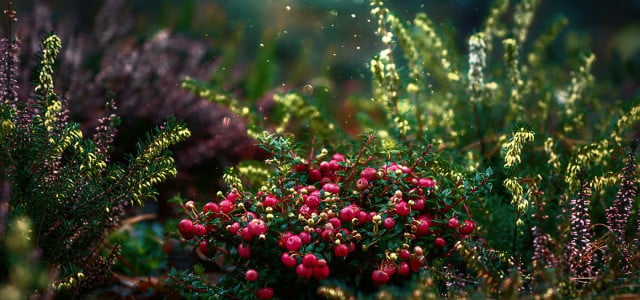Not only can botanicals contribute added charm to your garden and home, they can also function as effective fly repellents.
Flies, mosquitoes, or other bugs inevitably become annoying at some point in the year. DEET, or N-Diethyl-meta-toluamide, is a commonly found active ingredient in many bug sprays, but in addition to the potential risk for causing health effects, DEET is ineffective against flies.
Many plants, however, have natural bug repellent properties that can aid your garden, backyard, or home if it suffers from an overabundance of flies. For more natural, chemical-free solutions, here are 10 plants that repel flies naturally.
Looking for a natural mosquito repellent? Find a solution here: The 12 Best Plants to Naturally Repel Mosquitos
Plants That Repel Flies #1: Lavender

Lavender’s fragrance isn’t only lovely, it also produces an essential oil that functions as a natural bug repellent against mosquitos, moths, fleas, flies and bugs. To get the best results, keep your lavender in bouquets or planted in sunny areas and entrances to your home, or garden.
This plant can also be rubbed on your hands, body, or clothing. Always be sure to do a test application on a small section of skin in case of allergies.
#2: Basil
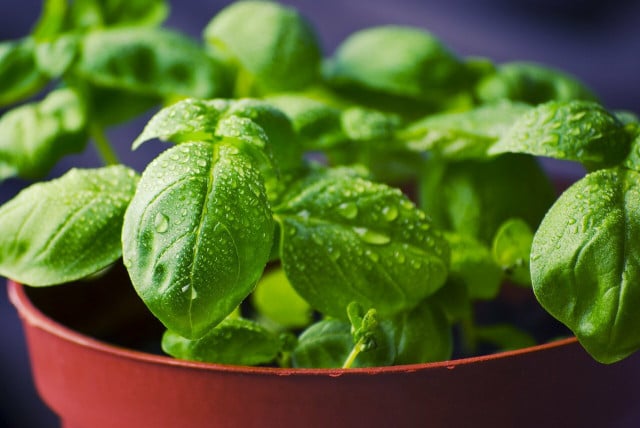


Second on our list of fly-repelling plants is basil. This herb, most often used for cooking, also works as a housefly and mosquito repellent. Fresh basil can be placed in doorways to help keep pesky flies and mosquitos away. If you’re able to keep a basil plant, this is ideal for a consistent fly repellent, especially in the warmer months. Basil essential oil can even be added to other oils and lotions as a bug-repelling ingredient. For a simple approach, roll basil leaves over a small section of skin to make sure you don’t have an allergy. Then, roll them in the palms of your hands and over your body.
#3: Lemongrass
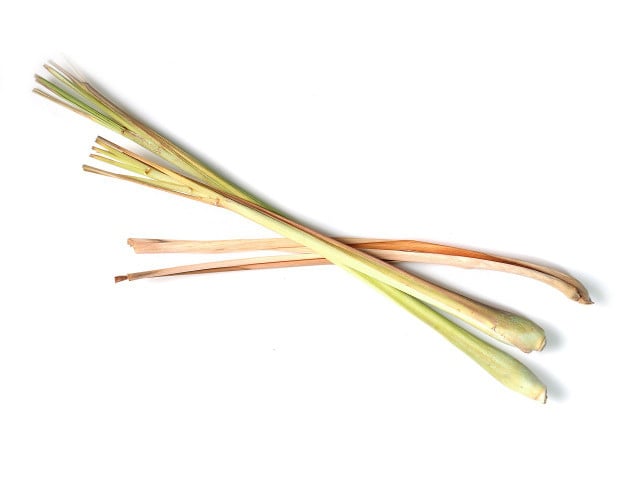


Lemongrass is a tall grass most commonly used in South Asian cuisine and can function as an effective housefly and mosquito repellent. The natural oil found in lemongrass is a natural bug repellent. Lemongrass is an annual plant that grows well on the ground or in pots. Like the first two herbs, lemongrass can be used on the skin–just be sure you don’t have an allergy to the grass by testing on a small portion of skin first. You’ll also want to make sure you like the smell of lemongrass before covering your skin with its oil.
Plants That Repel Flies #4: Tansy
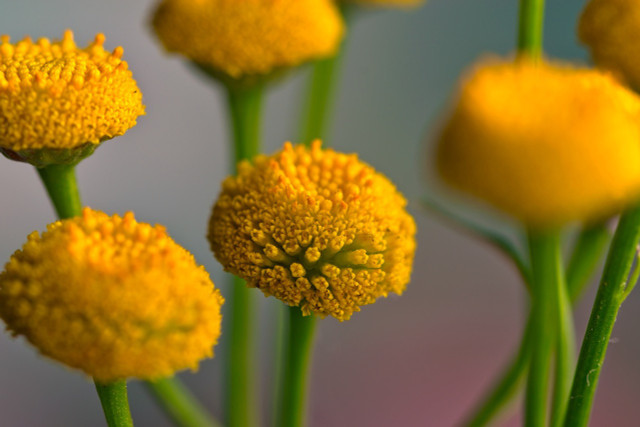


Tansies are flowers that grow in yellow clusters that can give your home a bright pop of color in addition to repelling flies. Be careful with these flowers if you have kids or pets as they can be irritating to the skin and should not be eaten by curious little ones. Tansies are best grown in pots because they can be invasive.
#5. Mint
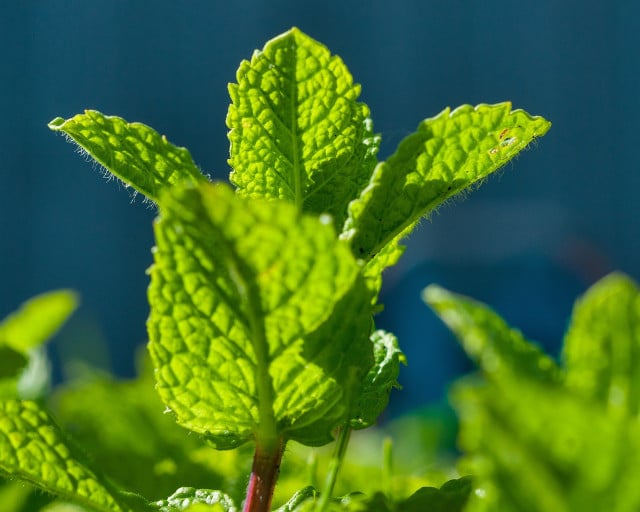


Mint is another common plant that repels flies and other pests. It is an invasive species that can take over and grow quite large, so it is best to grow mint in large-sized pots in an area that is sunny in the morning. Mint secretes an aroma that is coveted by different cuisine around the world but is disliked by bugs like flies, mosquitos, and spiders. Place your pots strategically depending on where your bug problem is. Mint can be applied to the skin, but always be sure you don’t have an allergy first.
For more tips on growing mint, read:
#6. Marigold
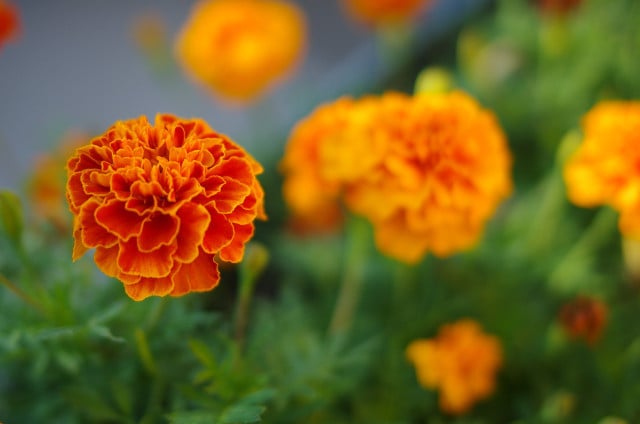


Marigold is especially good at repelling whiteflies when put in your indoor or outdoor garden. Though they do best as outdoor plants, they can survive well inside if provided with enough light. This beautiful flower does best in the summer months as it prefers warm temperatures and 6-8 hours of sun.
Plants That Repel Flies #7: Rosemary
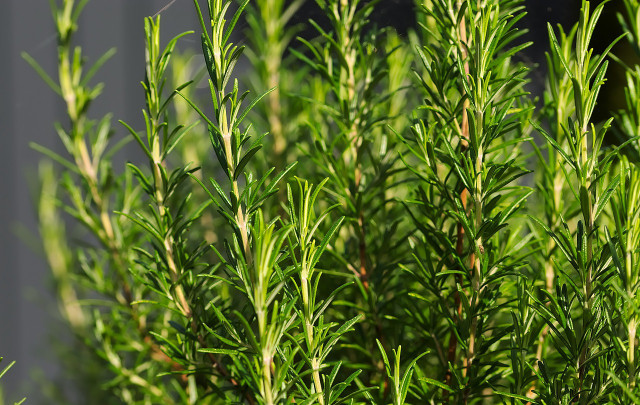


A pot of rosemary can aid in repelling flies, mosquitos, and other insects that dislike the scent of its aroma. Rosemary needs a full day of sunlight and good airflow, otherwise, it can develop mildew. Place your pot of rosemary in your indoor or outdoor garden, depending on the season, or in a well-lit place at an entryway of your home.
#8. Citronella
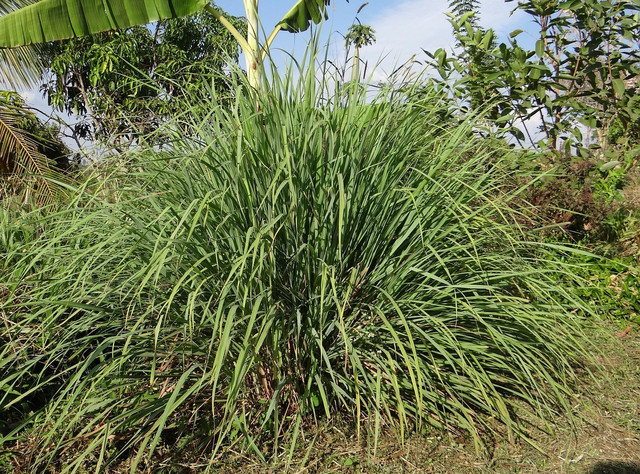


Citronella is well-known as a plant that naturally repels mosquitos, but it also aids in repelling flies. This grassy plant produces a citrusy aroma, hence its name, that keeps insects away. Citronella requires good sunlight and constant temperatures, so it may struggle in the winter months unless kept under a lamp. Keep citronella in a pot in an area you would like to repel flies from.
#9. Eucalyptus
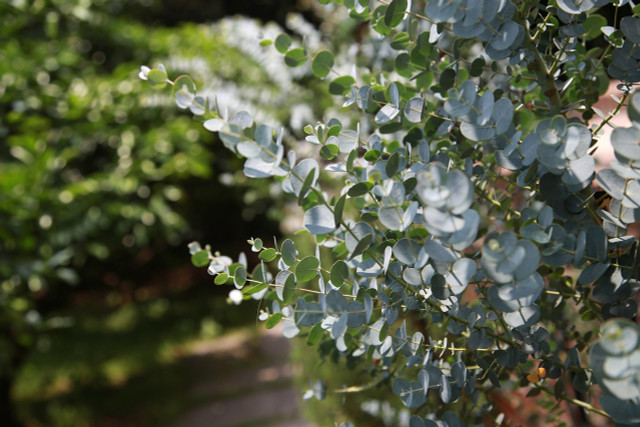


Eucalyptus trees and the oil they create, while beautiful and calming to many humans, can also function as a deterrent to flies and other bugs. Though eucalyptus trees can grow fast and are relatively easy to start, they need about 8-10 hours of direct sunlight a day. If that is unrealistic where you live and you don’t want to invest in lamps, eucalyptus oil is a helpful alternative to keeping flies away. If you have fresh eucalyptus, you can simply rub it on your skin to keep flies off or buy eucalyptus oil to create a bug spray by mixing it with water.
#10. Wormwood
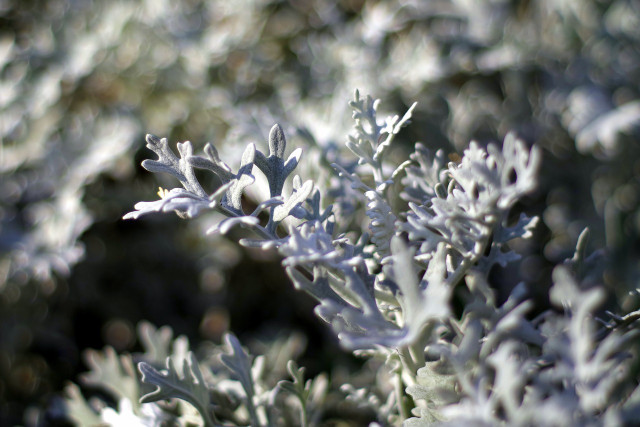


Wormwood is an easy-to-grow traditional medicinal herb. This plant also produces resin or oil that can work as a natural insecticide. Wormwood can be picked fresh and rubbed on your arms or clothing, or bundles can be placed in an area close to flies and mosquitoes. While this herb has a long history of medicinal use, be sure to consult your doctor before trying to consume wormwood.
Read More:
- How to Get Rid of Carpet Beetles: 6 Natural Tips
- How to Use Eggshells as Fertilizer for Your Garden Plants
- Soapwort: How to Grow and Care for this Flowering Beauty
Important Information regarding Health-related Topics.
** Links to retailers marked with ** or underlined orange are partially partner links: If you buy here, you actively support Utopia.org, because we will receive a small part of the sales proceeds. More info.Do you like this post?






